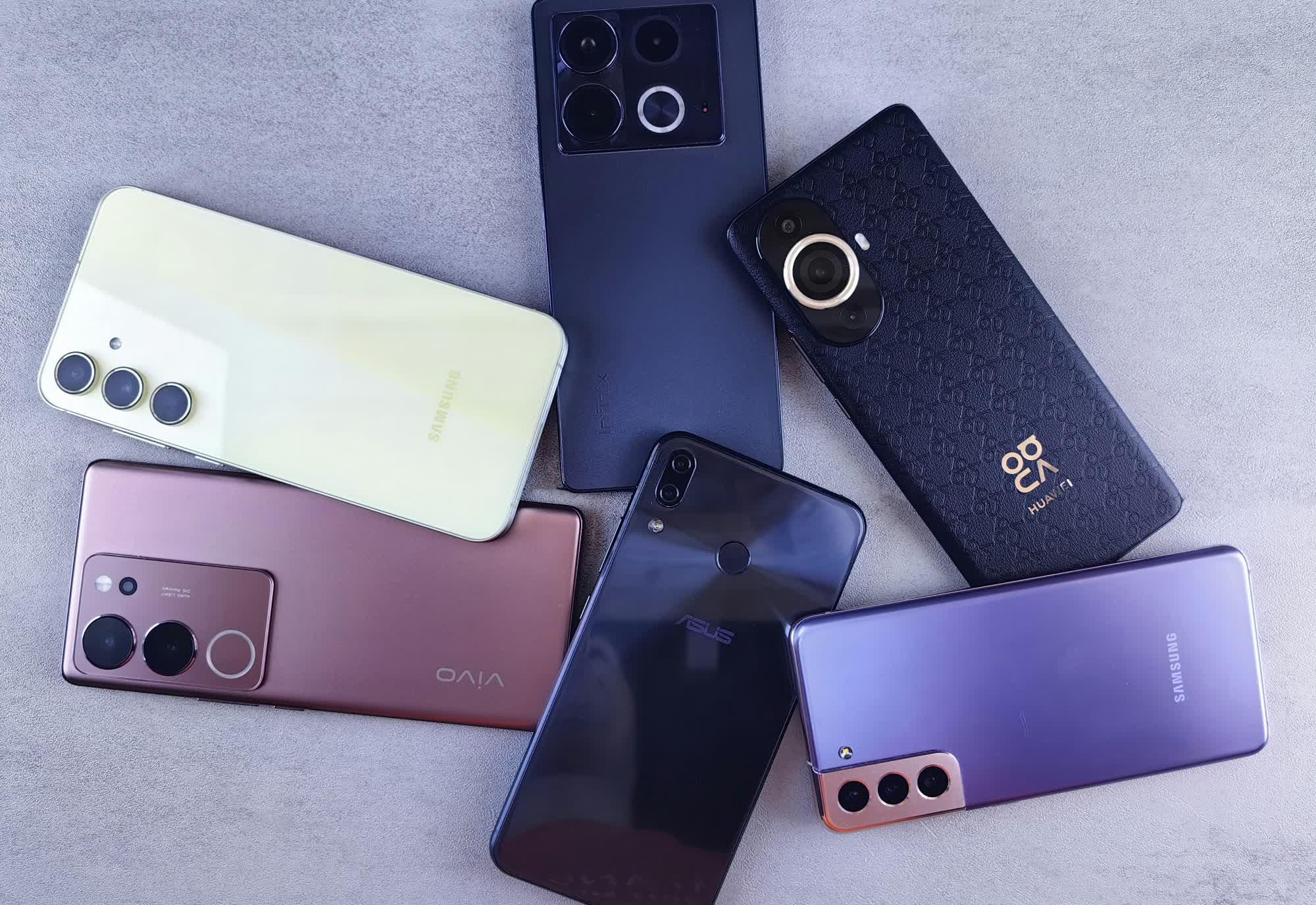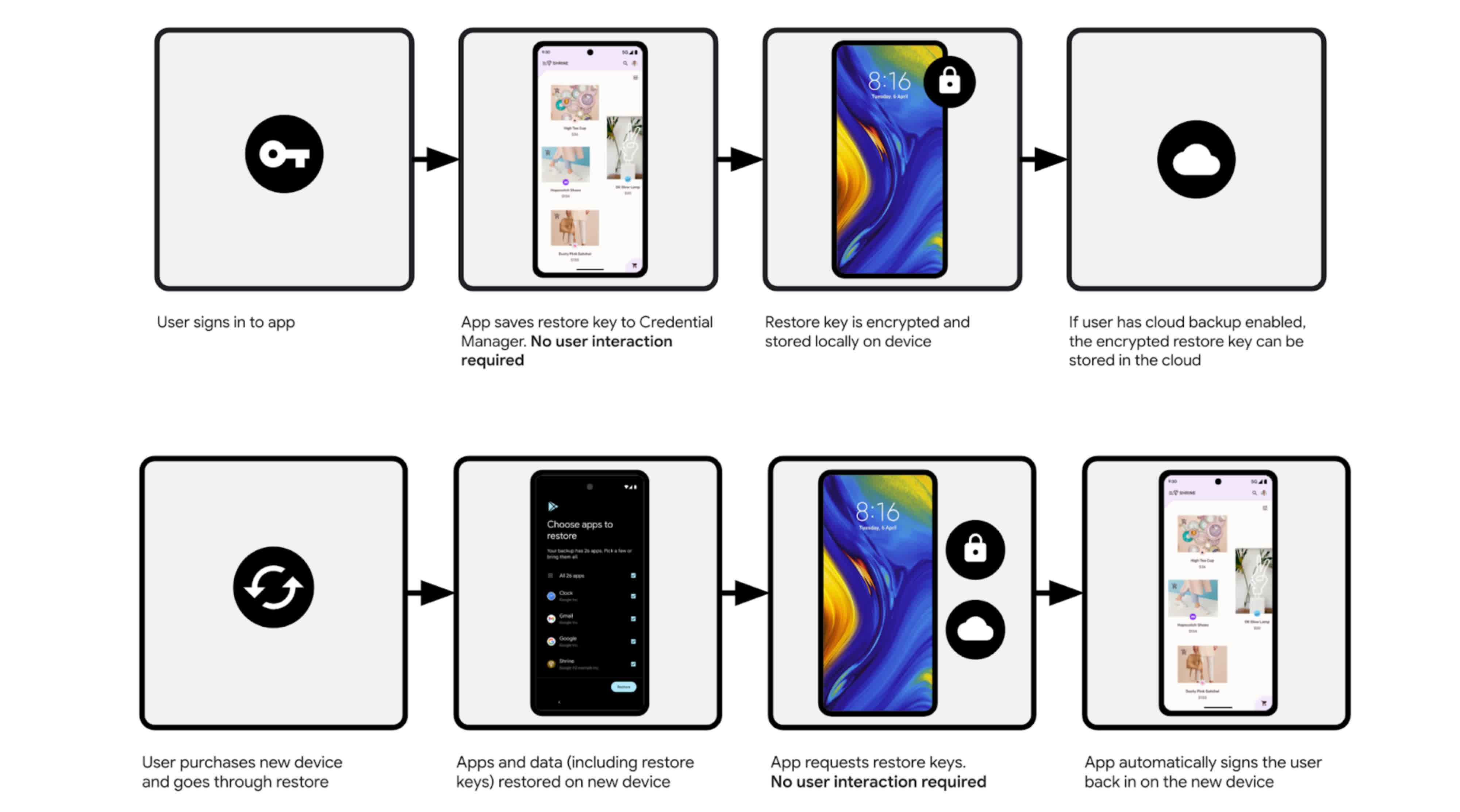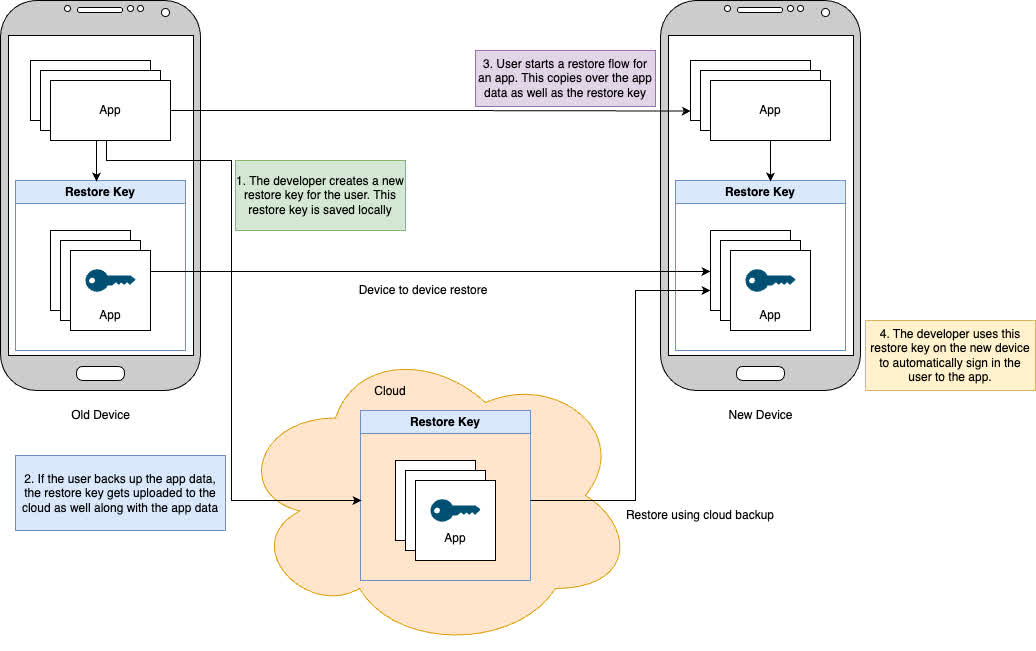Forward-looking: When users replace or upgrade an iPhone or iPad, login credentials usually transfer automatically, allowing customers to resume using their favorite apps and services immediately. In contrast, Android devices force users to log back into their apps manually, which can become tedious and time-consuming. A new feature for Android developers aims to remedy this annoyance.
Google recently introduced Restore Credentials, which allows users to back up and transfer login credentials when migrating between Android devices. The functionality should significantly shorten the time required to set up a new phone or tablet.
Instructions for developers to implement Restore Credentials appeared in the Android developer portal this week, so apps will likely begin adding the feature over the coming days. Developers can find the API using the Credential Manager Jetpack library.
Click to enlarge
To back up login information in a supported app, sign in and create a restore key on a device running Android 9 or later. The key is linked to the account and stored locally in the Credential Manager, but users can also upload it to the Google Backup cloud. Activating a new device and transferring apps also transfers all associated restore keys, which will re-enter login credentials automatically so users can quickly resume using their apps.
According to Google, the process is seamless for customers if developers employ the "BackupAgent" command and add logic in the "onRestore" callback. Keys are secured with end-to-end encryption and utilize the same server backend as FIDO-based passkeys.
Click to enlarge
Although Restore Credentials supports older Android versions, its release coincides with the introduction of Android 16's first developer preview. The debut build includes new features for the photo picker, Health Connect API, and privacy sandbox.
Two major API releases are scheduled for the second and fourth quarters of next year, marking a shift in Google's mobile OS development strategy. The new, accelerated pace ensures closer alignment with manufacturing schedules, bringing the latest Android builds to future devices sooner.
In a historic ruling, a US judge recently declared that Google's control over Android, Chrome, and the iconic search engine represents an illegal monopoly, which could severely impact the mobile OS's future. The Department of Justice has recommended that the tech giant be forced to sell the web browser and possibly Android. The decision could dramatically impact the tech landscape if Google loses its appeal in the ongoing court battle.


